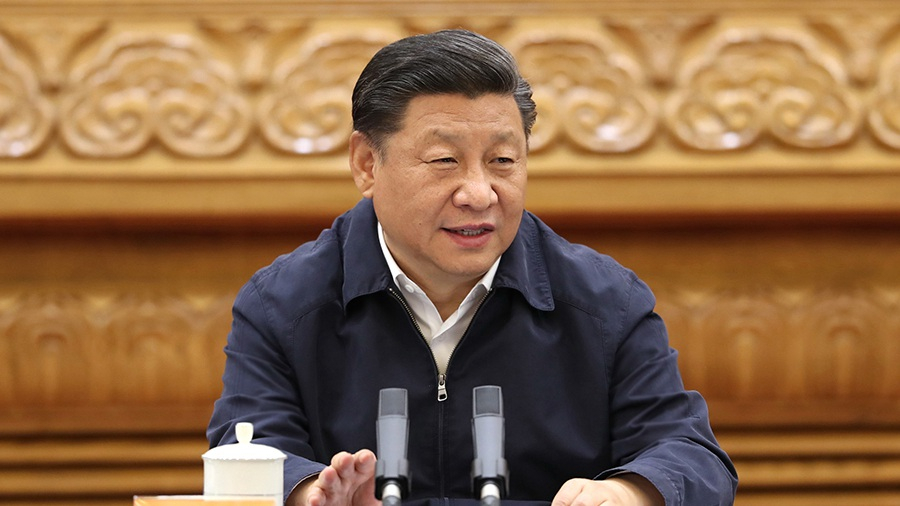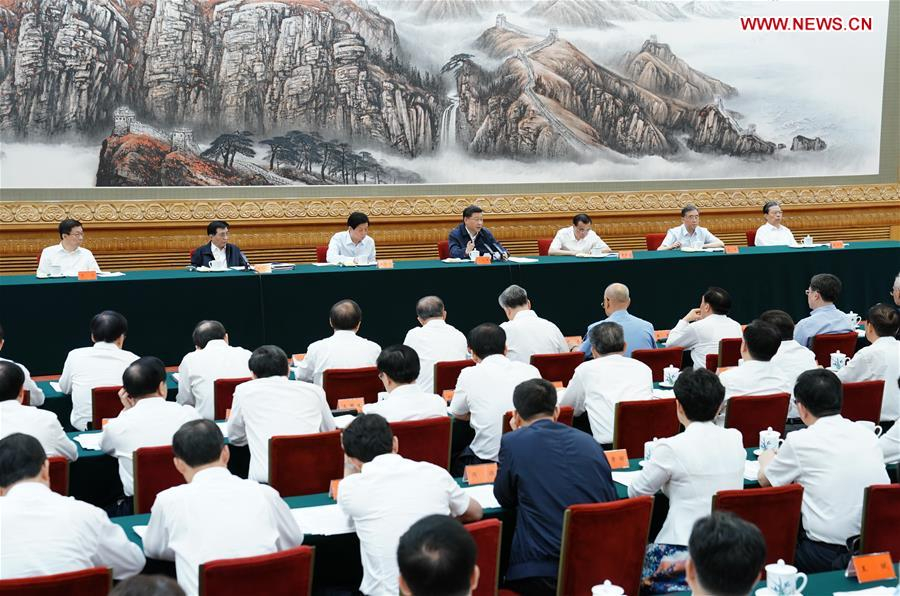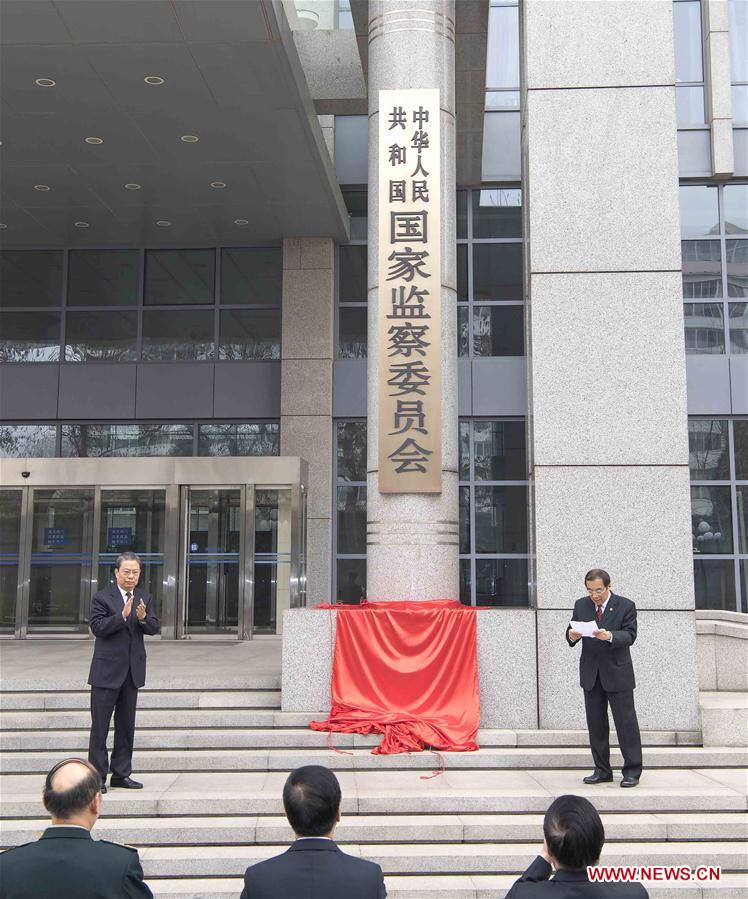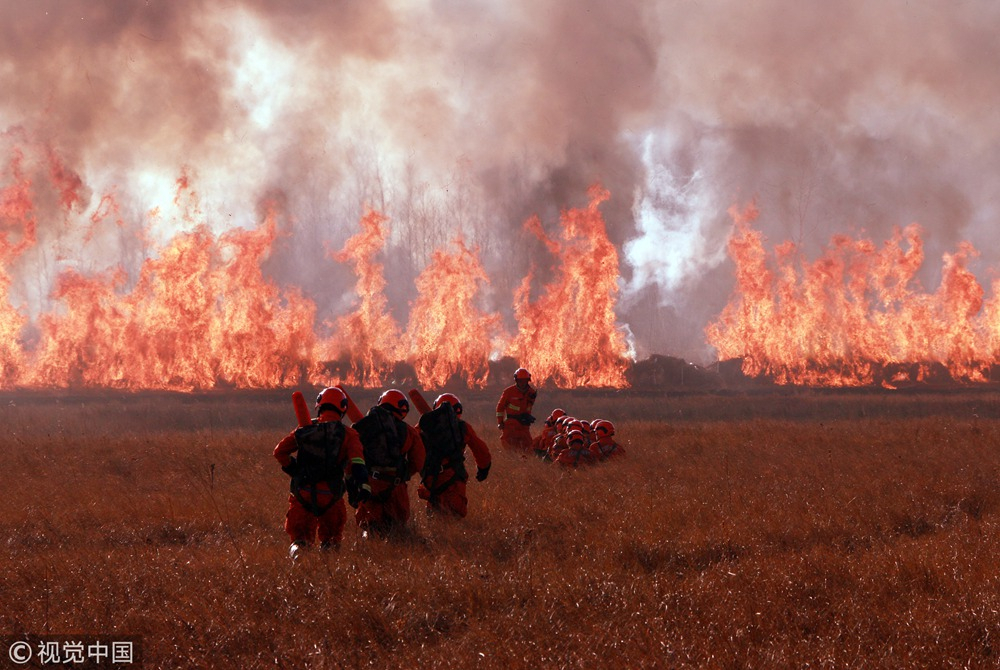

Xi Jinping, general secretary of the Communist Party of China Central Committee, on Friday stressed consolidating the achievements in the reform of Party and state institutions and modernizing China's system and capacity for governance.
Xi, also Chinese president and chairman of the Central Military Commission, made the statement at a meeting reviewing the reform of Party and state institutions.
Deepening reform of Party and state institutions is a systemic and holistic restructuring of the organizational structure and management system of the CPC and the state, Xi noted, calling for efforts to perfect the functional system of Party and state institutions.
He said China is committed to promoting the reform of various types of institutions at the central and local levels, including the Party's leadership system, the governance system, and the armed forces system.

Xi Jinping (C) delivers a speech while attending a meeting reviewing the reform of Party and state institutions in Beijing, July 5, 2019. /Xinhua Photo
Xi called on all institutions to fulfill their duties with a focus on the people's ever-growing needs for a better life.
Noting that deepening reform of Party and state institutions is an important part of China's efforts to deepen overall reform, he urged the whole country to continue to fight tough battles and "crack hard nuts," and strive to make breakthroughs in reforms in crucial areas and key links.
China aims to achieve "decisive results" in reforms in crucial areas and key links by 2020.
The country should prioritize reforms that tackle practical issues, that are significant for the overall economic and social development, that involve major institutional innovations, and that can help to enhance the people's sense of gain, Xi said.
The meeting was also attended by Li Keqiang, Li Zhanshu, Wang Yang, Zhao Leji and Han Zheng, and presided over by Wang Huning, all of whom are members of the Standing Committee of the Political Bureau of the CPC Central Committee.

China's National Supervisory Commission is inaugurated in Beijing, March 23, 2018. /Xinhua Photo
Massive shake-up
In March 2018, the CPC Central Committee released a plan on deepening reform of the Party and state institutions, which involves restructuring of organs under the CPC Central Committee, the National People's Congress (NPC), the State Council, and the Chinese People's Political Consultative Conference (CPPCC) National Committee, as well as reform of the administrative law enforcement system and military-civilian reform.
The formation of a National Supervisory Commission and restructuring of the State Council were among the most-discussed changes.
According to an amendment to China's Constitution passed by the NPC on March 11 last year, the supervisory commission is a new state organ that independently exercises its power of supervision and is not subject to interference by any administrative organ, public organization or individual.

China's newly-formed Ministry of Emergency Management conducts a firefighting exercise in the forest area of the Greater Khingan Mountains in Heilongjiang Province, northeast China, October 18, 2018. /VCG Photo
The drastic shake-up of the State Council was aimed at making it better-structured, more efficient, and service-oriented. As part of the reform, new ministerial-level bodies such as the Ministry of Natural Resources, the Ministry of Ecological Environment, the Ministry of Agriculture and Rural Affairs, the Ministry of Culture and Tourism, the National Health Commission, the Ministry of Veterans Affairs and the Ministry of Emergency Management were created.
On the other hand, entities such as the Ministry of Supervision, the Ministry of Land and Resources, the Ministry of Environmental Protection, the Ministry of Agriculture, the Ministry of Culture and the National Health and Family Planning Commission were dismantled.
(With inputs from Xinhua)

Copyright © 2018 CGTN. Beijing ICP prepared NO.16065310-3
Copyright © 2018 CGTN. Beijing ICP prepared NO.16065310-3